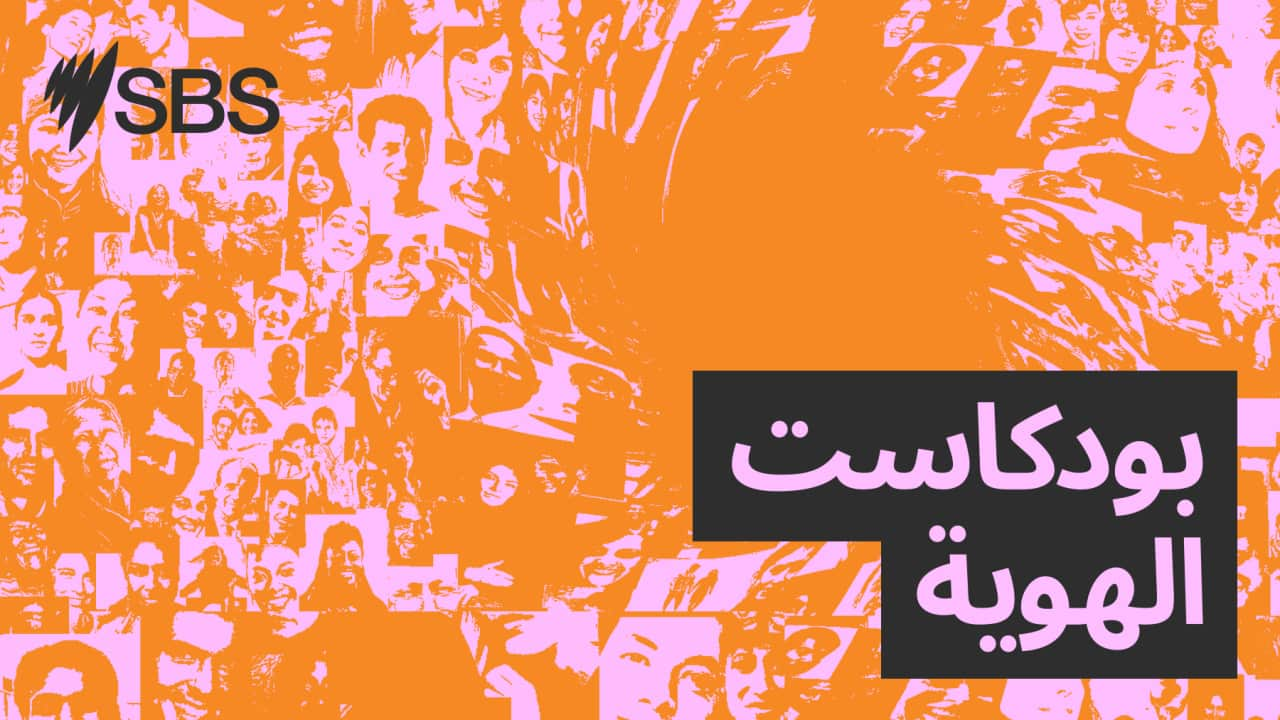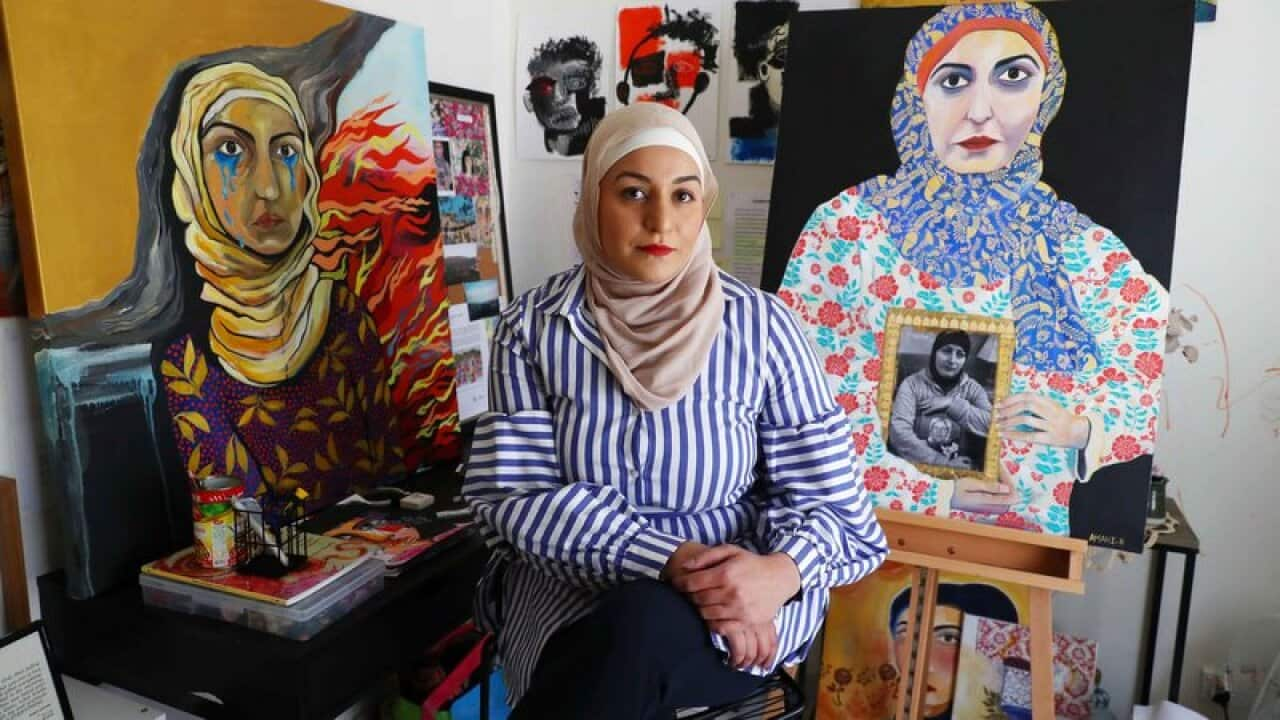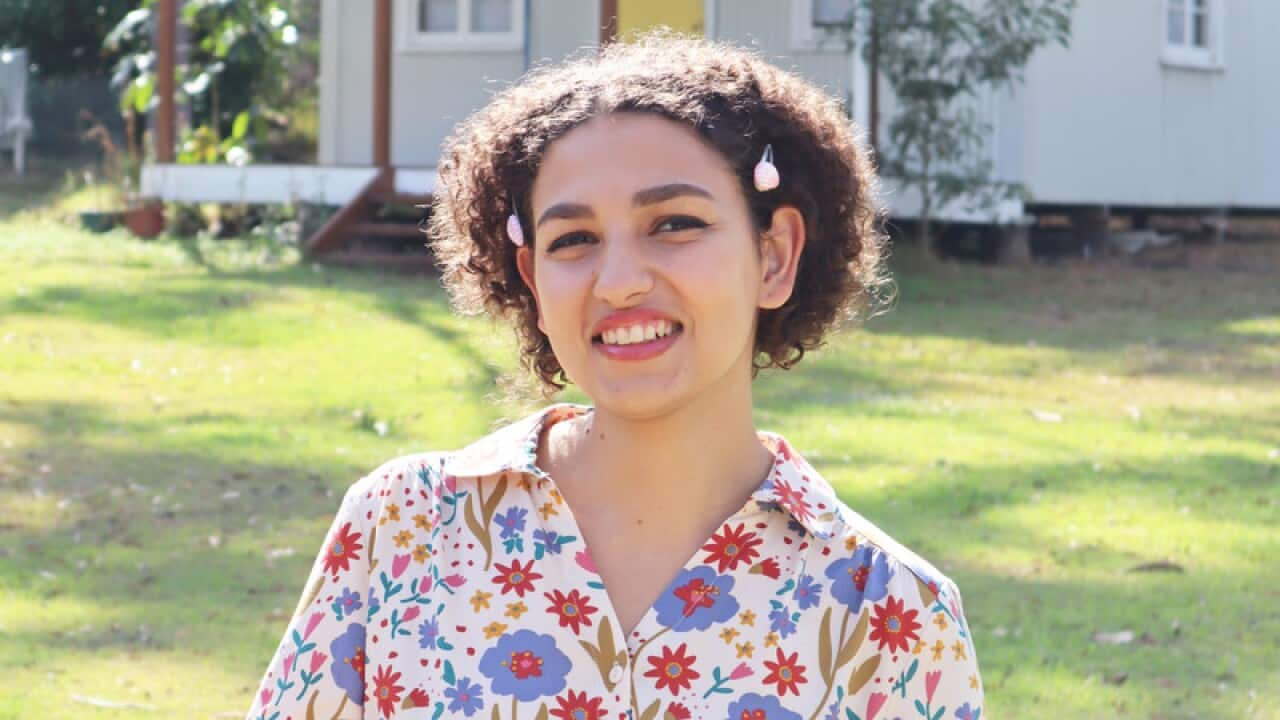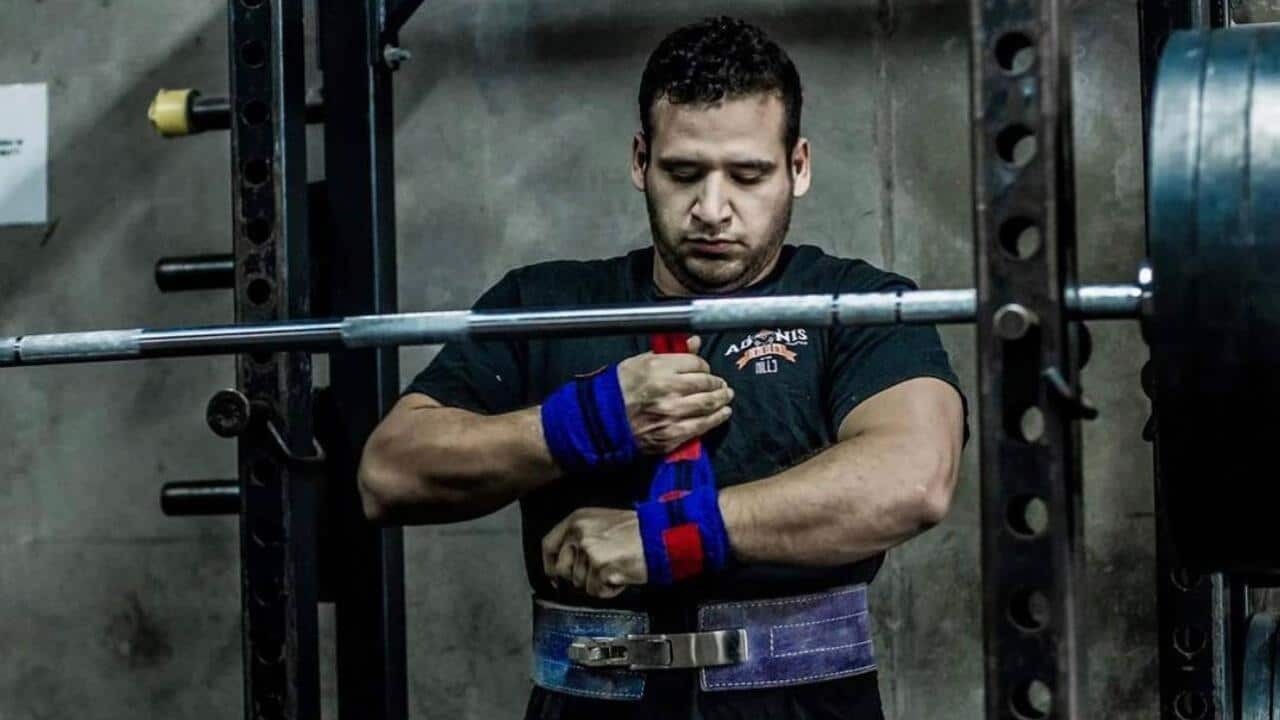Listen to Sara Saleh's story by clicking on the audio link attached to the image above. Or via your favorite podcast platform here
As New Year’s Eve celebrations were in effect on December 31, 1999, and as people filled the streets to celebrate the beginning of a new millennium, Sara woke up to the sound of weeping.
As confusion turned into fear, she jumped out of bed and ran into the living room of the family home.
“My father, unruly hair and chequered PJs, was comforting my sobbing mother strewn on the couch. I had never seen her cry like that before. I stood there, waiting, confused, and tense,” she recalled.
“'We just got a call from your uncle. Jiddo is with God now,’ baba said, ‘don’t worry Habibi. Just go back to sleep’.”
This was Sara Saleh's first conversation about death. She returned to bed. The next day, her mother flew to Beirut. At home in Sydney, life went on as normal. All family members performed their duties and routines as usual, as if nothing had happened.
The next day, her mother flew to Beirut. At home in Sydney, life went on as normal. All family members performed their duties and routines as usual, as if nothing had happened.

Sara Saleh Source: Supplied
“Baba probably wanted to protect my childhood and innocence," Sara says.
Or perhaps this is a mechanism that adults use to deal with children in these situations.
“It was easier not to try and explain death.”
My Arab Identity Episodes Descriptions

My Arab Identity - بودكاست الهوية
In the days following those events, Sara thought of her grandfather a lot, remembering the colour of his blue eyes and stark white hair. She recounts that he looked like a slimmer version of Santa Claus.
“He would always sing made-up versions of Fairouz’s Arabic lullabies to me, and I, not my mum, had inherited his singing voice.” Here, Sara began to understand a simplified version of the meaning of death.
Here, Sara began to understand a simplified version of the meaning of death.

Sara Saleh Source: Supplied
“I understood what death meant, kind of. Enough to know it was more than the fairy tales our parents told us (‘we go to the sky as a star’), or what we saw in the movies (Mufasa still haunts us all).”
She knew she would never see her grandfather again, but did not know how to deal with the idea of his death when she was only twelve-years-old.
Despite adult conversations that Sara listened to occasionally about death, and visits her parents made each year to the graves of their parents, Sara continued to avoid talking about or thinking about death, its meaning, and all related Arab-Muslim customs and concepts around it.
It was easier for Sara to accept Western concepts of death and verbal expressions accompanied by the saying, "you only have one life”.
“I did not want to commit to any belief of what happens in the ‘afterwards’.”
In 2014, when Sara turned 27, death found a way back to her world. "Atta, my paternal grandmother, my favourite person in the whole world, passed away after years of illness,” she said.
"Atta, my paternal grandmother, my favourite person in the whole world, passed away after years of illness,” she said.

Sara Saleh Source: Supplied
“I was too tired, too sad to speak, to respond to a shedding of ‘Allah yerhamas’ and ‘my condolences’ that followed us from the mosque janaza prayer and Quran recitation gathering, to the dua circles held at our house every single night for a week.
“I remained quiet for most of 2014, and there are many ways to be quiet. Told everyone I was fine. Worked it away. Performed it away. Prayed it away.”
Therefore, as Sara described, migrants “survive” when faced with death in the diaspora. They learn in such difficult situations how to be patient and survive, even if some parts of them surrender to the grief.
“I was grateful to a handful of my aunties and uncles, stacks of cousins (not by blood but bonded in our attempts to find familiarity in foreign lands) and friends.”
They didn't talk about grief or death. About a year later, Sara was supposed to meet a colleague at a café in Sydney. On the way, she came across her old elementary school in Stanmore.
About a year later, Sara was supposed to meet a colleague at a café in Sydney. On the way, she came across her old elementary school in Stanmore.

Sara Saleh Source: Supplied
"I haven't visited this area for years - the return triggered a holy well of nostalgia.”
Sara's parents worked multiple jobs during the day and studied endless nights. Her grandmother, Atta, used to walk her to school in the morning and back home when she was finished every day.
“Each day started with an awkward nod as she signed me in at 8.45 am and ended with a ‘sank-yew’ at 3 pm. Atta barely spoke a word of English, but everyone knew who she was. I made sure of it. ‘My Atta made me malfoof . . . My Atta braided my hair today . . . Atta taught me to play this card game called donkey,’ I would tell my teachers, my classmates, anyone who would listen.”
A flashback of her childhood memories continued there.
My Arab Identity Podcast Promo

My Arab Identity - بودكاست الهوية
“I walked behind the cafe and continued walking towards the school playground. As I looked out of the iron gate, I looked to find that the monkey bars where my little body got its first bee sting were gone, replaced by some sort of contraption that seemed ‘safer’.
“Beside the playground were benches where the sausage sizzles and bake sales used to be held. Where I cried and cried when my teacher Ms Sunny said I was a ‘Muslim’ – she was explaining why she had to refuse my request for a sausage roll even though all the other kids had one. The devastated, seven-year-old me explained to Ms Sunny, ‘I am Australian, not Muslim.’ Seven-year-old-me didn’t want homeland on my body.”
It was the afternoon after visiting the school that Sara decided to travel to Egypt.
The flight was halted in four countries during a 48-hour flight. She then arrived in Hamidiya, the village of her grandmother Atta, a two hour drive from Cairo.
"Hello, Khawajaya (foreigner)," my uncle joked, “We’re glad you could finally make it”.
Sara's grandmother Atta was buried with her close family members, most of whom she never met.
Sara’s grandfather, Atta's husband, was buried with his family in his village of Khreis, an hour's drive away.
“As I faced the tombstone, folding myself into prayer and reciting the words of ‘al-Fatiha’ – ‘Al-hamdullilah rab al-3alimeen. Ar-rahman, Ar-rahim’, I did not burst into tears as I’d worried I might. Instead, I panicked.
“I was going to be so far away from Atta. Would I be buried with jiddo? mama and baba? Where would my siblings be? What if I one day had kids of my own? I had always thought that as migrants, our tragedy was in the living. Our existence a constant hyphenation.
This was the first time I realised our death is hyphenated too.
For Sara, the migrant's survival battle was not just about a fear of losing the language or culture in a new country. It was also a survival without people we love and care about in different places around the world, and our inability to share their joys and sorrows.
Survival was also privilege. “Was a blue passport. Was being anchored in three degrees. Survival was resentment, was ‘I want to be normal, I hate being different’. It was speaking differently to our parents. It was: we are definitely speaking another language they can’t understand.”
But where will Sara choose to be buried?

Sara Saleh Source: Supplied
“‘Mama, who do you want to be buried with? Are you going to pick me, your favourite child, to hang out with in the afterlife? Or teta, who has like eight other children she can choose from? Think about it carefully.’ I wriggled my eyebrows.
Her mother said: "Sara ... as migrants, the concept of death for us is very similar to our concept of the home. It expands and shrinks. Progresses and regresses. Ebbs and flows. Death just is. And it is inevitable. You are born in one place and buried in another. In exile, you live and die several times over in between.
“In our death we demand a respect that we don’t always get in life,” her mother continued.
Here, Sara reached a solution to her burial conundrum, as she described, home is in family and love.
It is more than just a geographical place on the map.
"The solution is not to find a suitable place for my burial, but to accept the idea of death no matter what happens. There are many people around me who love and care about me and that's the most important thing, we will end up together no matter what."
Sara Saleh is a poet and an activist for human rights, social justice and refugees rights. Her Arab background is a mixture of Egyptian, Lebanese and Palestinian. She was born in Cairo but lives on Gadigal Land/Sydney. She is currently completing her doctorate in law from the University of New South Wales. Sara has spent the past decade working with Amnesty International and CARE International between Australia and the Middle East. Sara’s first collection of poetry was released in 2016, looking at and writing on issues of displacement, migration, identity and women's affairs. Her poems have been published by SBS Life, the Australian Poetry Magazine, Bankstown Poetry Slam and other forums.
This is the first episode of , in which young Arab Australians speak about how they navigate a mixed identity. Hear more episodes and read the rest of the stories .
In the second episode of My Arab Identity, we meet Amani' Haydar, a young woman of Lebanese descent. She had a restricted social life as a child and was deprived of her mother in horrible circumstances. Her experience with her parents' migration to Australia revolved around a thin line between the expectations that migrants imposed on their children, and their cruelty in forcing their children to meet those expectations. Today, Amani Hayder stands against domestic violence after her father killed her mother four years ago.
Listen to other episodes form My Arab Identity podcast here:

Healing after mum's murder











